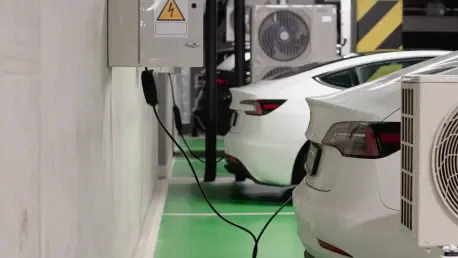I’m thrilled to sit down with Kwame Zaire, a renowned manufacturing expert with a deep focus on electronics, equipment, and production management. With his extensive knowledge in predictive maintenance, quality, and safety, Kwame offers a unique perspective on the electric vehicle industry’s rapid evolution. Today, we’ll dive into the remarkable rise of a major Chinese EV manufacturer in the UK market, exploring their strategies for growth, pricing innovations, leadership dynamics, and ability to navigate policy challenges. Join us as we unpack what’s driving this company’s dominance and what it means for the future of sustainable mobility.
Can you explain how a Chinese EV manufacturer has achieved such staggering growth in the UK, with sales skyrocketing nearly 880% year-on-year?
Absolutely, Marie. This kind of growth is a testament to a well-executed strategy. The company has focused on rapid market penetration by offering a compelling mix of affordability and technology. They’ve prioritized building a robust distribution network and ensuring product availability, which has allowed them to capture demand quickly. Additionally, their responsiveness to market trends and consumer needs in the UK—coupled with a strong emphasis on electric vehicle innovation—has set them apart. Compared to other regions, the UK’s enthusiasm for sustainable transport and supportive infrastructure has provided fertile ground for such explosive growth.
What factors have positioned the UK as this company’s largest market outside of China?
The UK stands out due to a combination of consumer readiness and policy support for electric vehicles, even if specific grants aren’t always available to this manufacturer. British buyers are increasingly prioritizing eco-friendly options, and there’s a growing infrastructure of charging stations that makes EV ownership practical. Additionally, the company has tailored its offerings to align with UK preferences, such as compact models suited for urban environments. Their strategic focus on local partnerships and understanding cultural nuances around sustainability has also helped them resonate more deeply with UK consumers compared to other international markets.
How does this manufacturer manage to keep prices so competitive, with models starting at just over £26,000?
It comes down to their mastery of vertical integration. By controlling much of their supply chain—especially battery production—they’ve slashed costs that other automakers often face. This allows them to price aggressively while still investing in R&D for cutting-edge features. They’ve also struck a balance between affordability and quality by focusing on scalable manufacturing processes, ensuring they don’t compromise on reliability or safety. Compared to higher-priced competitors, their strategy is to democratize EV access, making electric cars a realistic choice for a broader audience.
Under the leadership of its founder and CEO, the vision has been to become a global EV leader by 2025. What’s driving this ambitious transformation from a battery maker to a full-scale automaker?
The vision here is rooted in a long-term belief that electric vehicles are the future of mobility, paired with a deep expertise in battery technology. The CEO’s early conviction that batteries are the heart of EVs gave the company a head start in developing efficient, cost-effective solutions. This focus has fueled their expansion into vehicle manufacturing with a clear goal: to lead the market through innovation and scale. It’s a transformation driven by a relentless push to integrate renewable energy solutions into everyday life, positioning them not just as a car maker, but as a key player in sustainable living.
How have recent leadership appointments in the UK, like the Head of Customer Experience, influenced the company’s growth trajectory?
New leadership, particularly in customer experience, has been pivotal. Bringing in someone with a background from traditional automakers has allowed the company to refine the entire buyer journey—from initial interest to vehicle delivery. This leader’s emphasis on customer education about EVs and accessibility has helped demystify the technology for UK buyers. Their prior experience with a more conventional brand also brings a fresh perspective on blending traditional automotive service standards with the innovative, EV-centric approach this company embodies, ultimately strengthening trust and loyalty among customers.
The new Head of Retail Sales mentioned being inspired by the passion within the UK team. What do you think fosters this kind of energy and commitment?
I believe it’s a mix of a shared mission and a dynamic work culture. The company has instilled a sense of purpose around transforming transportation and combating climate change, which resonates deeply with employees. In the UK, they’ve likely cultivated an environment where team members feel empowered to innovate and contribute ideas. This passion translates directly into customer interactions—when staff are genuinely excited about the product, it shows in their sales approach and builds stronger connections with buyers, ultimately driving better results.
Despite not qualifying for the UK government’s EV grant, this manufacturer continues to thrive. How do they overcome such policy challenges?
They’ve navigated this hurdle by doubling down on their cost efficiencies and passing those savings to consumers. Without relying on subsidies, they’ve maintained attractive pricing through streamlined production and in-house battery tech. They’ve also diversified their product lineup to appeal to various segments, ensuring broad market appeal regardless of policy support. Beyond grants, they’ve tackled other UK-specific barriers—like building brand recognition in a competitive space—by investing in local marketing and partnerships to establish credibility and trust.
Looking ahead, what is your forecast for the future of this company’s role in shaping the UK’s transition to sustainable mobility?
I’m optimistic about their trajectory. With their current momentum, they’re well-positioned to be a major force in the UK’s shift to cleaner transport. Their focus on affordability and expanding product ranges will likely keep them ahead of the curve, especially as EV adoption grows. If they continue to invest in local manufacturing—like their battery facilities for buses—and strengthen customer education, they could not only dominate sales but also influence how infrastructure and policies evolve. I foresee them playing a central role in making electric mobility the norm rather than the exception in the UK over the next decade.









